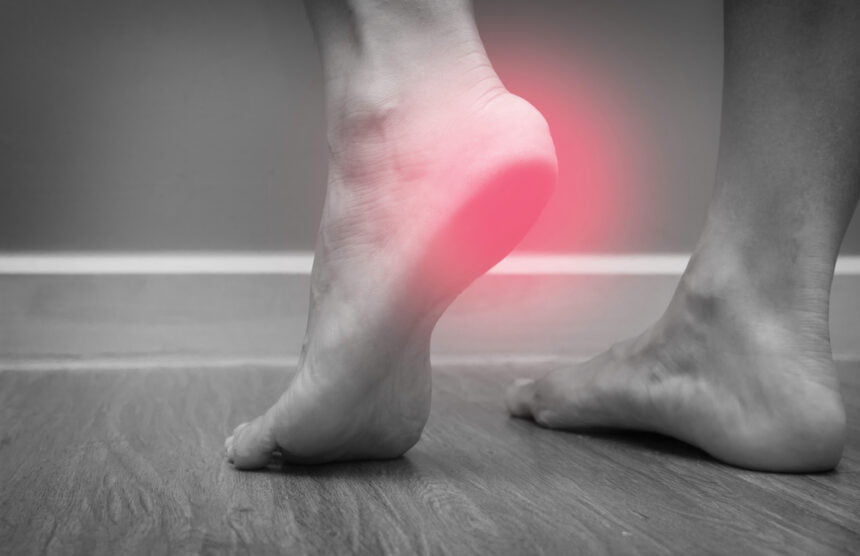Plantar fasciitis, a painful and relatively common cause of pain along the bottom of the foot and/or heel, occurs when the ligament (a thick band of tough, but flexible tissue) that runs across the bottom of the feet and connects the heel bone to the toes, becomes inflamed. When the plantar fascia are inflamed, heel pain or pain on the bottom of the feet when walking or standing can result. Plantar fasciitis is frequently seen in middle-aged people, but it can occur at any age. It is also commonly seen among athletes and soldiers. What is the main cause of plantar fasciitis? One of the most frequent causes of plantar fasciitis is excessive pronation. Excessive pronation refers to an abnormal motion of the foot where the arch of the foot flattens out too much when walking or standing. Another common cause of plantar fasciitis is injury, whether by trauma or by repetitive strain placed on the ligament of the sole of the foot. However, these are not the only possible causes. There are several other possible causes as well:
- a tight Achilles tendon
- certain diseases such as reactive or spinal arthritis
- flat feet (not the same as pronation)
- very high arches
- frequent long-distance running
- obesity or sudden weight gain
- frequently wearing thin-soled, worn-out shoes
- frequently wearing high heels
What happens if you don?t treat plantar fasciitis? Will it heal on its own?
Plantar fasciitis rarely goes away on its own and should not be left untreated, as it can last for a long time and end up causing chronic heel pain, which can then affect the way you walk. In fact, plantar fasciitis and knee pain often go hand-in-hand, and plantar fasciitis can cause pain and injury to your legs and hips as well. Whatever its cause, this is a foot condition that should not be ignored. It can also cause scarring and thickening of the plantar fascia, and in extreme cases, it can cause the ligament to partially or completely tear. How is plantar fasciitis treated? There are several methods available to treat plantar fasciitis, and it?s always wise to start with the least invasive such as stretching, elevating and icing your feet. Taking anti-inflammatories, wearing orthotics and shin splints are also effective treatments. Shin splints are another way of stretching your calf muscles and the arches of your feet. In addition, a few visits to a physical therapist is often recommended as the therapist can demonstrate exercises that can strengthen the lower leg muscles and stabilize your walk. Wearing shoes for plantar fasciitis is another highly recommended method of treatment. Wearing proper footwear can have a huge impact on the intensity of the pain experienced and recovery time. As a last result, cortisone injections and surgery are other possible treatment methods, but these should only be considered after all other options have been exhausted, as complications can result from these methods. What features should plantar fasciitis shoes have? In order to make sure that your plantar fasciitis shoes provide a good fit and achieve the results that you want, you need to buy the best shoes for plantar fasciitis. To do this, you should first educate yourself about what features to look for in plantar fasciitis shoes. Below is a brief list of these important features:
- Ample and supportive arch support. Good arch support can relieve stress on the plantar fascia, and reduce pain by reducing overpronation and pressure on the heel.
- A midsole that is both firm and flexible. The shoe should neither be too flexible nor too unyielding. Rather, it should bend gradually while also providing some resistance
- Adequate cushioning, especially in the heel area. Plantar fasciitis shoes must be able to absorb the impact when the foot hits the ground. This requires soles excellent cushioning system.
- Insoles and foot orthotics with a deep heel cup help protect the heel bone (calcaneus), as the heel cup doesn?t allow the soft tissues around the heel bone to flatten, and instead, hugs the heel to provide stability and cushioning to absorb shock and reducing pressure on the heel.









